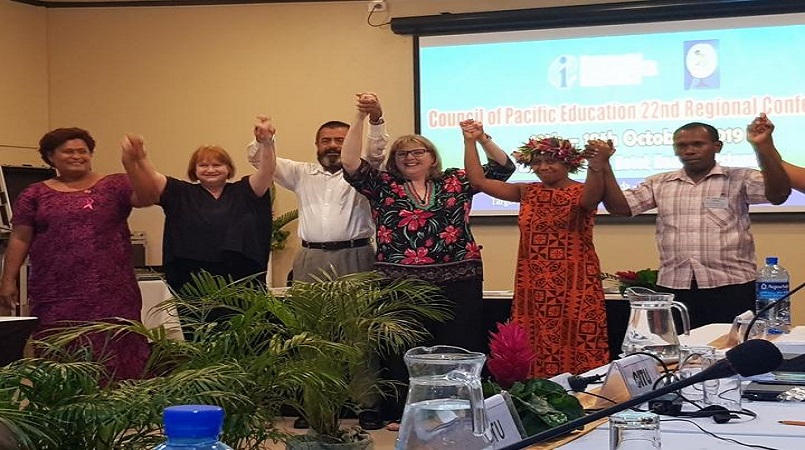
Large class sizes and inadequate pay for teachers are common challenges in public education sectors across the Pacific.
These challenges were discussed by delegates at the Council of Pacific Education's 2019 conference in Nadi, Fiji.
The council's outgoing president Correna Haythorpe opened the meeting with a speech on the lack of progress towards reaching Sustainable Development Goal 4 - High Quality Public Education for All.
She referred to Education International's report titled "Off Track" which highlights the fact that many nations are failing to spend 6 percent of their GDP and 20 percent of their national budged on public education.
In schools across most Pacific countries, student-to-teacher ratios are increasingly disproportionate, while pay remains doggedly low for teachers.
Teachers also experience difficulty in accessing professional development, as well as in communicating with parents and addressing challenging student behaviour.
Consultation with teachers around education policy was also raised as an issue in all nations, with the exception of Samoa.
Education International also expounded on its Commercial Activity in Pacific Education report which examined the extent of privatisation and commercialisation in education in the Pacific.
The scoping study reveals the impact and consequences of education reform on schooling in the Cook Islands, Fiji, Kiribati, Samoa, Solomon Islands, Tonga, Tuvalu, and Vanuatu.
It shows that despite diversity in national policies, new public management reforms are impacting public education across each nation.
According to Education International, of pressing concern for education unions are the policies adopted on teachers.
Though schools in the Pacific Islands suffer teacher shortages, government policies are not conducive to making teaching an attractive profession.
The report reveals that high stakes accountability and punitive policies aim to control teachers, limiting teacher professional autonomy.
Educators do not feel that their salaries and working conditions reflect the high workload, large class sizes and daily challenges they face in the classroom.
Moreover, educators report precarious employment conditions that create instability in the workforce. In Fiji, teachers are hired on one-year contracts, after which they are selected or not for further service.
According to one research participant, as the contracts are issued directly with each individual, the use of these short-term contracts effectively constitutes "a means to eventually kill the unions".
Speaking at the conference, Govind Singh, the council's General Secretary said "this research points at many deeper unidentified issues plaguing the Pacific education system including teacher recruitment, teacher morale, sustainability and financing".
Download the full report here or the summary report here.
Meanwhile, the president of the Vanuatu teachers Union, Neselinda Garae, has been elected as the Council of Pacific Education Conference's president from 2020 to 2022.
